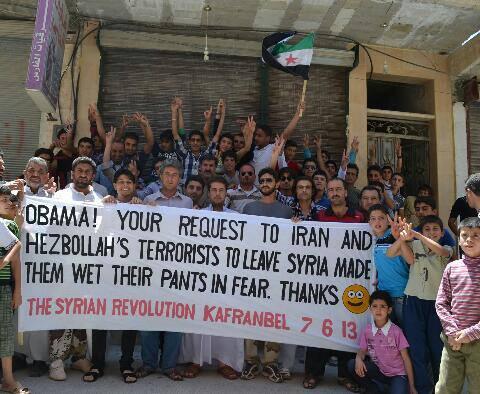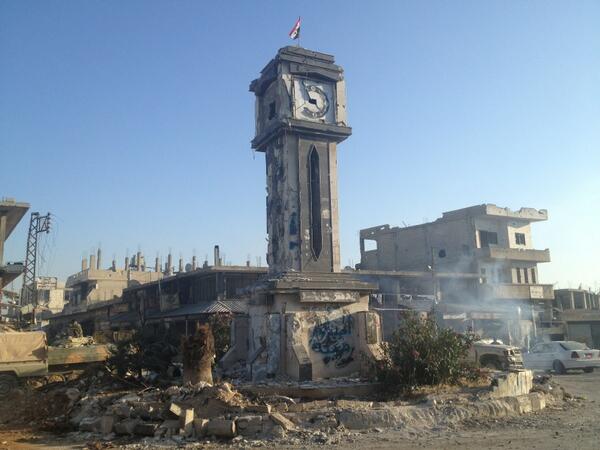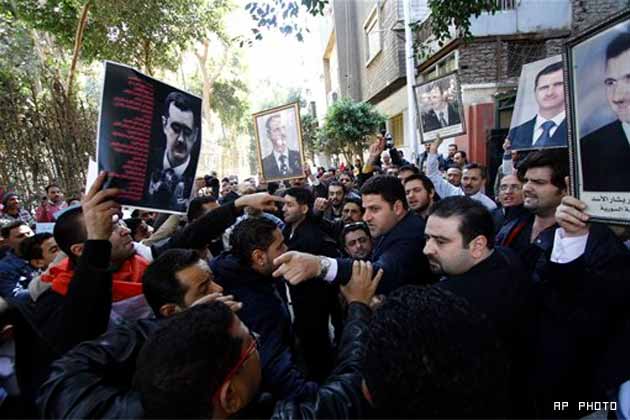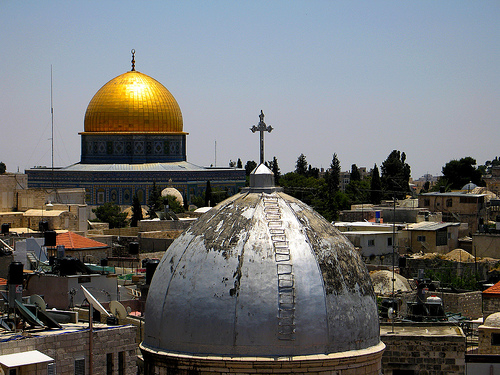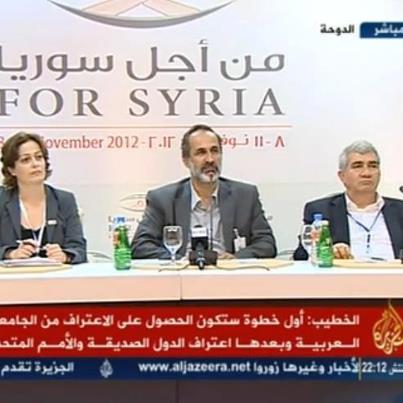 I spoke with The Globalist this morning about yesterday's announcement of a "Syrian National Coalition" to lead the opposition, including the election of Damascus cleric Moaz al-Khatib as President with prominent dissident Riad Seif and Suhair al-Atassi, one of the few women prominent in the opposiiton, as deputies.
I spoke with The Globalist this morning about yesterday's announcement of a "Syrian National Coalition" to lead the opposition, including the election of Damascus cleric Moaz al-Khatib as President with prominent dissident Riad Seif and Suhair al-Atassi, one of the few women prominent in the opposiiton, as deputies.
We discussed the manoeuvres that led to the Coalition, its aims, and the likelihood that it can achieve them. Take-away line: the opposition is hoping to establish a "provisional government" in northern Syria, with the backing of the international community for a protected zone --- but can the factions within the Coalition work together to reach that goal?
There is also discussion of the weekend's escalation in the Israeli-occupied Golan Heights, with Israel firing a "warning missile" after Syrian mortars hit the area.
The conversation starts at the 1:34.45 mark.
 Saturday, June 8, 2013 at 6:23 |
Saturday, June 8, 2013 at 6:23 |  Joanna Paraszczuk in
Joanna Paraszczuk in  EA Live,
EA Live,  EA Middle East and Turkey,
EA Middle East and Turkey,  Middle East and Iran
Middle East and Iran  Fayssal al-Hamwi,
Fayssal al-Hamwi,  Golan Heights,
Golan Heights,  Qusayr,
Qusayr,  Russia,
Russia,  Syria,
Syria,  United Nations
United Nations 
